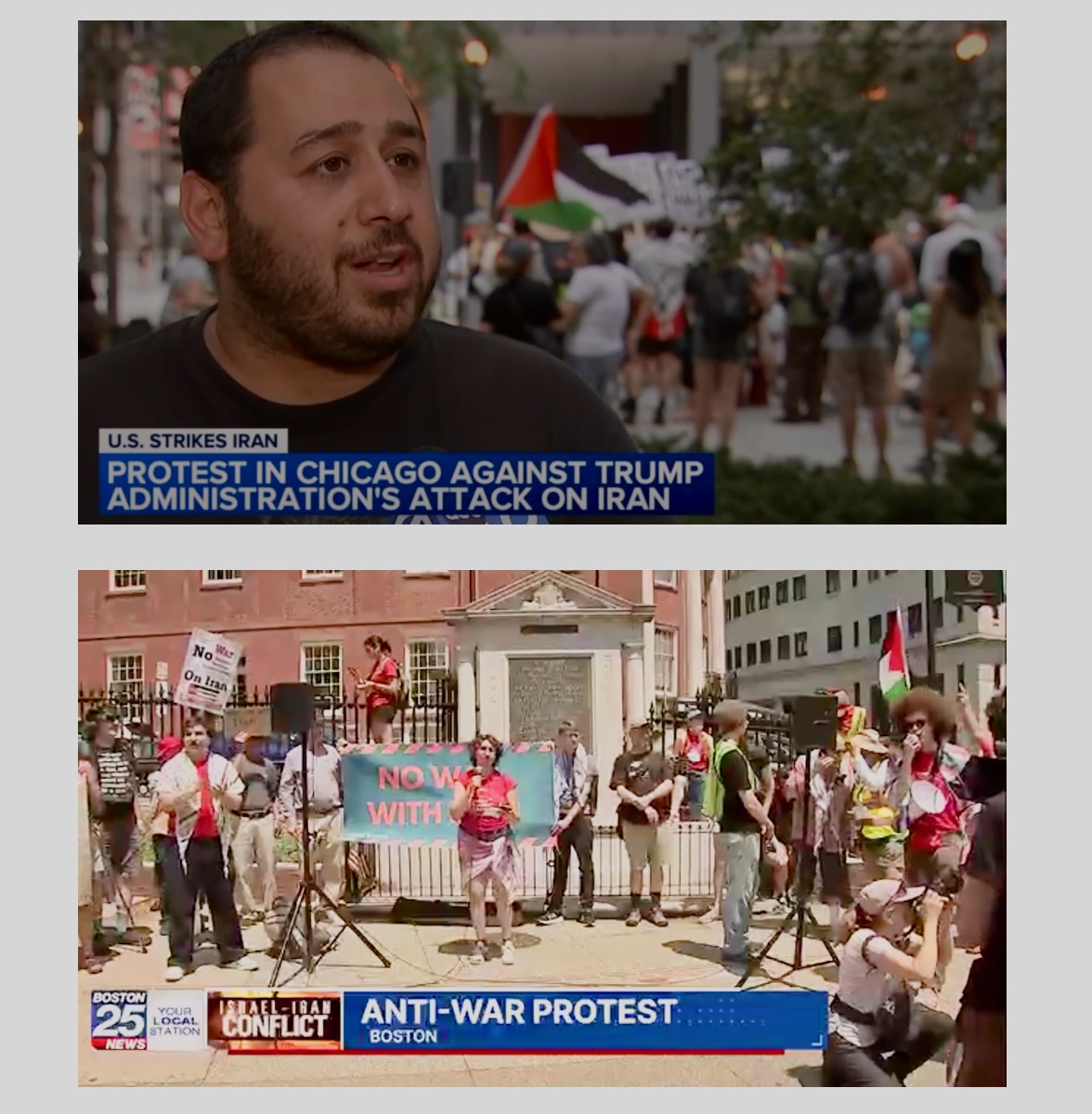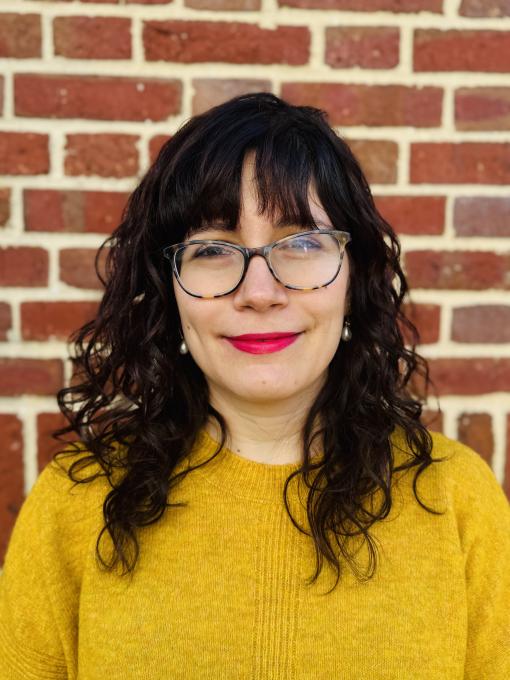“I’m so scared. I can hear the explosions near our home,” my aunt in Tehran whispered to me, her voice shaking over the phone. “May God help us all for what’s coming.”
As I listened, my heart sank. My social media feed was filled with horrifying images—bombs falling over Tehran, plumes of smoke rising from neighborhoods I know intimately. Minutes later, I saw a photo of a heavily damaged residential building just three streets away from where my aunt lives. Tehran, the city where I spent childhood summers, where my family has lived for generations, was in flames and under attack. It’s agonizing to read news headlines, but it’s a new level to actually experience them personally.
I was in a constant state of anguish knowing that most of my family had to flee Tehran from the bombs, while my uncle and his family were stuck in Tehran because they couldn’t find gas for their car.
The photos of bombed homes, bloodied children, and devastated families echoed scenes we’ve seen too often in Gaza. I was in a constant state of anguish knowing that most of my family had to flee Tehran from the bombs, while my uncle and his family were stuck in Tehran because they couldn’t find gas for their car. My cousin, a medical doctor, worked around the clock in the emergency room treating people heavily wounded from Israel’s bombs, while Israel targets civilian infrastructure, including hospitals.
At the same time, here in the U.S., I had to guide volunteers on organizing protests, emergency actions, constituent lobby meetings to urge members of Congress to support Iran War Powers resolutions, and more. As National Organizing Director at NIAC, my chief responsibilities include supervising our grassroots chapters across the country and leading campaigns in line with policy priorities which include stopping a U.S. war with Iran. As part of my job, I guided volunteers to organize protests, planned emergency actions, and set up constituent lobby meetings to urge Members of Congress to support Iran War Powers resolutions. We were all experiencing collective trauma of not hearing from our loved ones for days and rushing to organize to stop the bombs from falling over their heads. It’s similar to what Palestinian American advocates I know have experienced–organizing against the genocide while their families die in Gaza.
Through NIAC’s Iranian Americans Mobilize Against War campaign, people have shared their powerful stories from their homes and in the streets, many speaking out for the first time. They are doctors, students, small business owners, engineers, and artists. These voices reveal the human stakes behind policy debates.
Bahar, a data scientist in Boston, recalls the trauma of the Iran-Iraq War. “To this day, if I hear the air raid siren, my heart sinks,” she said. “I am an Iranian American. I don’t want the U.S. to go to war with Iran. The Iranian people don’t want war. They want peace, dignity, and safety.”
Recent polling backs up these personal stories and protests. After President Trump’s escalation with Iran, 85% of Americans said they opposed war with Iran. Among Iranian Americans, 62% support diplomacy as the best approach to Iran’s nuclear program, compared to just 22% favoring military action. These statistics are more than numbers—they represent a national consensus: Americans across party lines don’t want another endless war in the Middle East.
However, party leaders in Washington are ignoring what their base is demanding. Leading up to Israel’s attack on Iran, a bipartisan letter from 16 members of Congress urged the dismantling of Iran’s civilian nuclear capabilities—an unrealistic demand that would sabotage diplomacy. A similar bipartisan group during the 12-day war backed a resolution in support of Israel’s strikes on Iran’s nuclear facilities. The Democrats have lost the mantle of being the anti-war party, as their actions have been muddled: for example, Senate Minority Leader Chuck Schumer (NY) stoked fears of “secret side deals” only to then whip votes for Senator Kaine’s (VA) Iran War Powers Resolution to ensure that President Trump does not strike Iran again without authorization from Congress.
Meanwhile, some voices from both parties — including Rep. Ro Khanna (CA-17) and Rep. Marjorie Taylor Greene (GA-14), from prominent journalists like conservative Tucker Carlson to Mehdi Hassan on the left, have spoken against further U.S. entanglement in Israel’s war with Iran. This unusual coalition reflects the public’s overwhelming desire for de-escalation.
We know where the path of war leads. We’ve seen it in Iraq and Afghanistan: trillions spent, countless lives lost, regional instability worsened. The same media narratives, the same think tanks, the same silence when the dust settles. There’s never accountability — just more calls for war. A war with Iran would be even more catastrophic. Iran is a 90-million-strong nation with a deep sense of historical and cultural identity, and regional influence. More direct U.S. military confrontation would risk massive escalation, not just with Iran but across the Middle East.
That’s why grassroots mobilization is so essential. It was this same civic pressure — from citizens, activists, and advocates — that helped make the 2015 Iran nuclear deal possible, and now demonstrates in 2025 that there’s no public support for the U.S. to go to war with Iran on Israel’s behalf. It’s the reason why Trump bolted for a rapid exit by brokering the ceasefire between Israel and Iran. And it will take similar resolve to ensure a lasting ceasefire today, and to forge a new diplomatic path forward. Many Iranians inside and outside of Iran worry about the fragile ceasefire between Israel and Iran collapsing, given that Israel has violated ceasefires before.
“As I grow older, my dream of visiting my ancestral homeland grows as strong as my fear that by the time I do, there will be nothing left but ashes. But more than anything, I want those who remain to have a chance at their dreams. We owe them — and ourselves — diplomacy over devastation.”
As Neema Nazem, a Chicago-based Iranian American, says: “As I grow older, my dream of visiting my ancestral homeland grows as strong as my fear that by the time I do, there will be nothing left but ashes. But more than anything, I want those who remain to have a chance at their dreams. We owe them — and ourselves — diplomacy over devastation.”
That’s why our movement matters. It’s not just about stopping this war — it’s about forging a future where diplomacy prevails over destruction. It’s about rejecting the failed legacy of regime change, crushing sanctions, and endless wars. And it’s about reclaiming power — not only in the White House and Congress, but in our communities. As someone who has organized extensively in labor and higher education, I’ve been reflecting with partners in the anti-war movement on what it would mean to build deep, intersectional coalitions — with the factory workers who build the bombs, the truck drivers who transport them, the dock workers who load them onto ships, and tech employees part of No Tech for Apartheid.
Identifying sites of power beyond the state allows us to build strategic leverage — advancing our movement and moving us closer to the world we want to live in.

